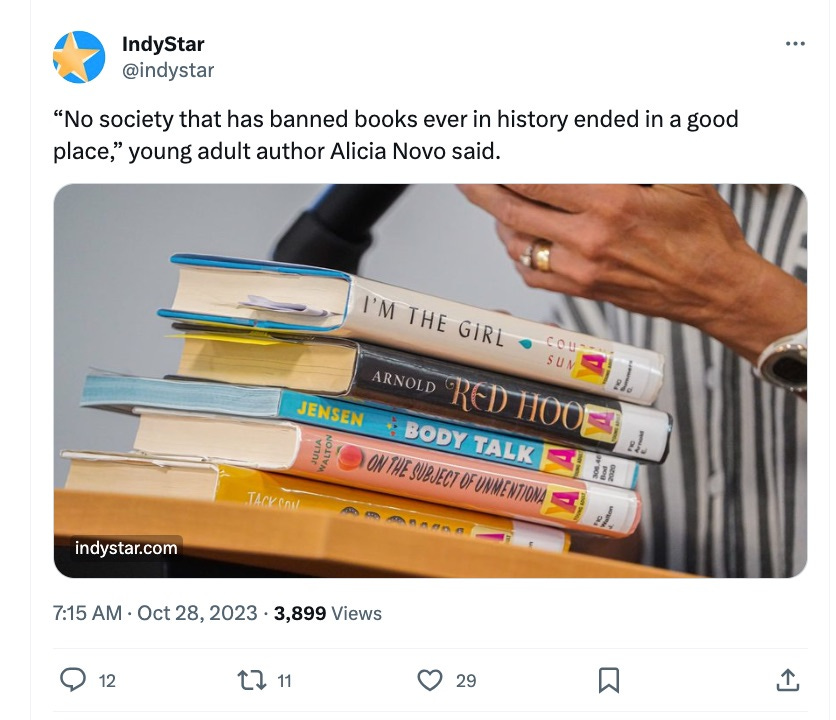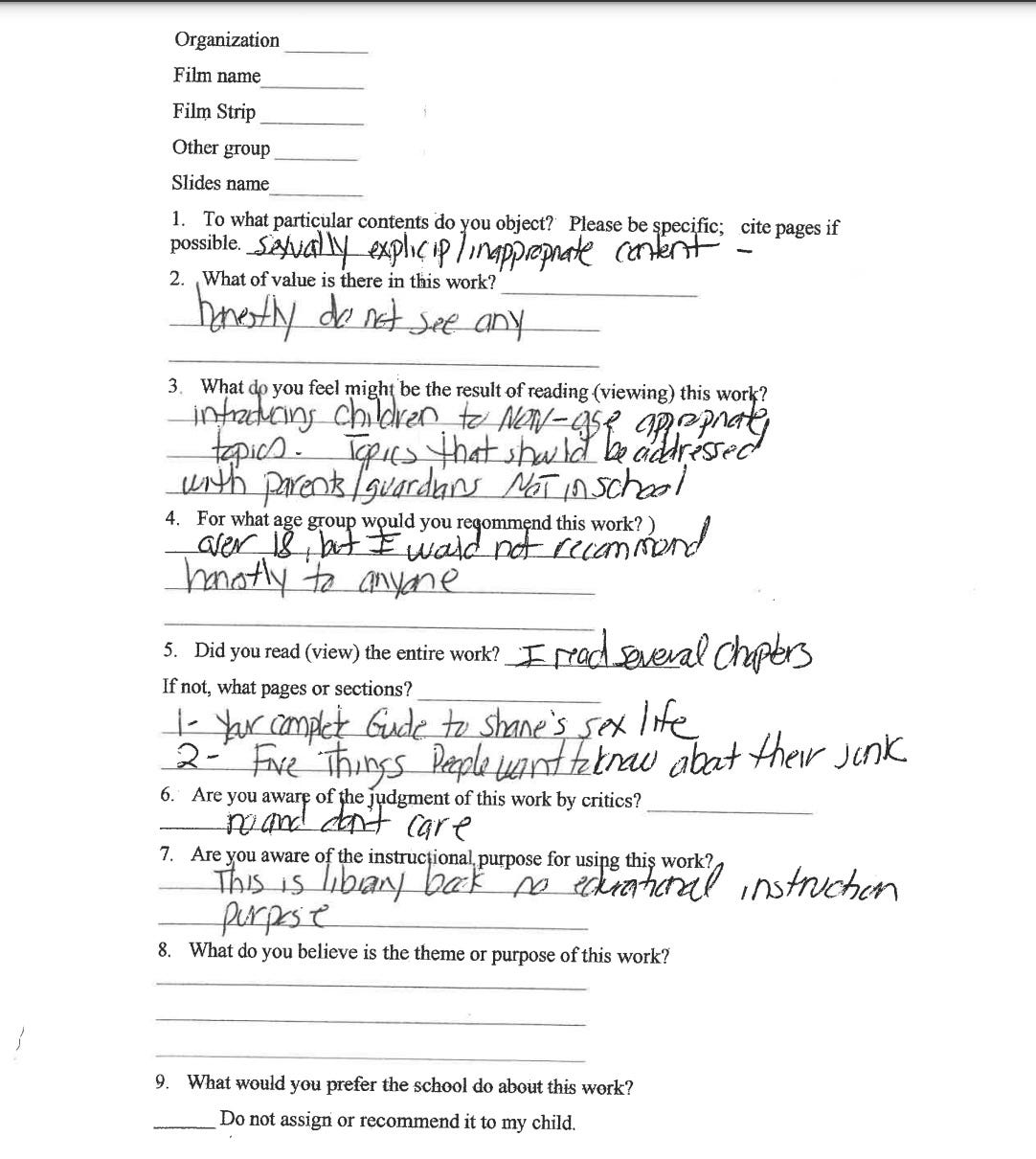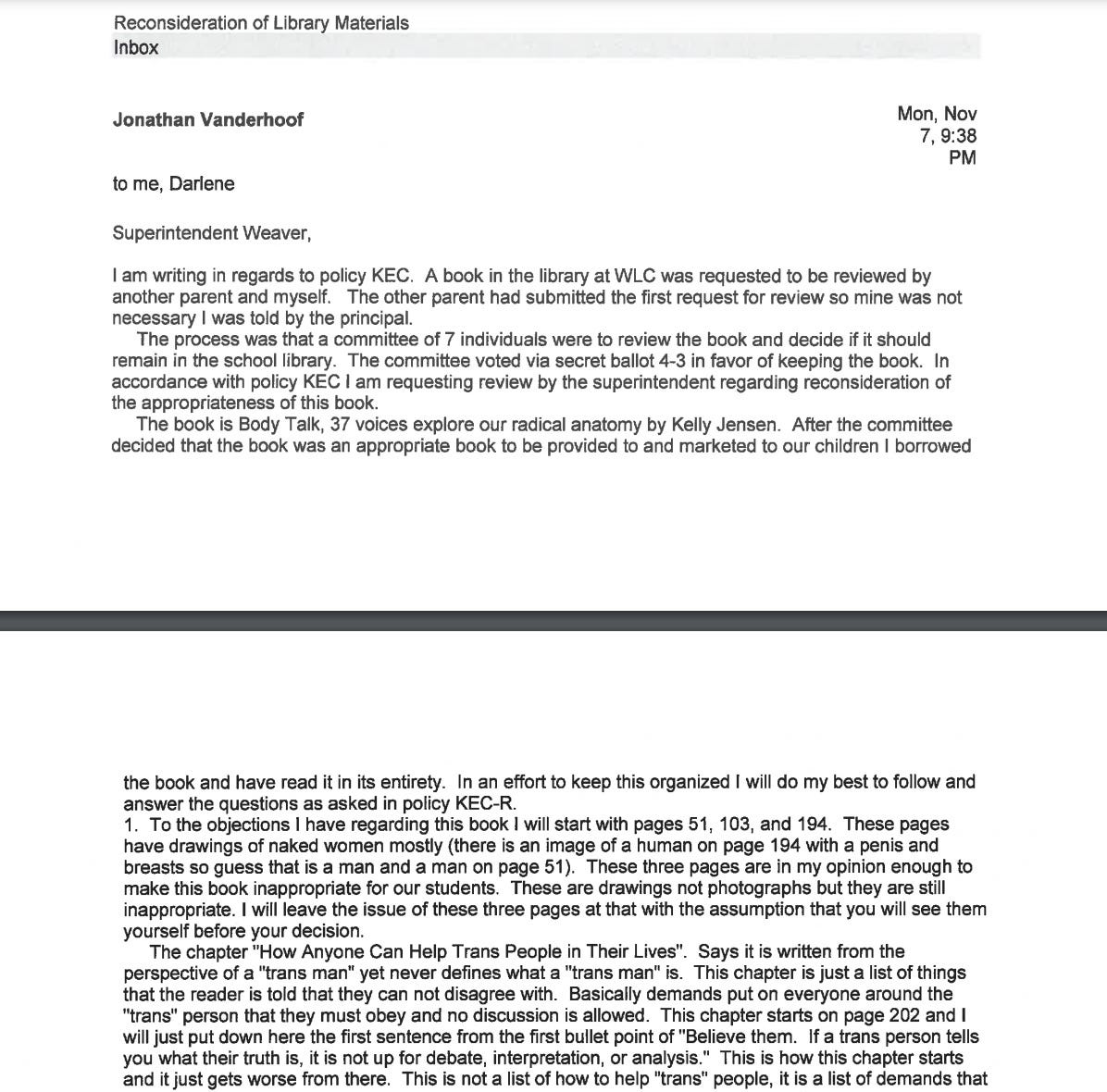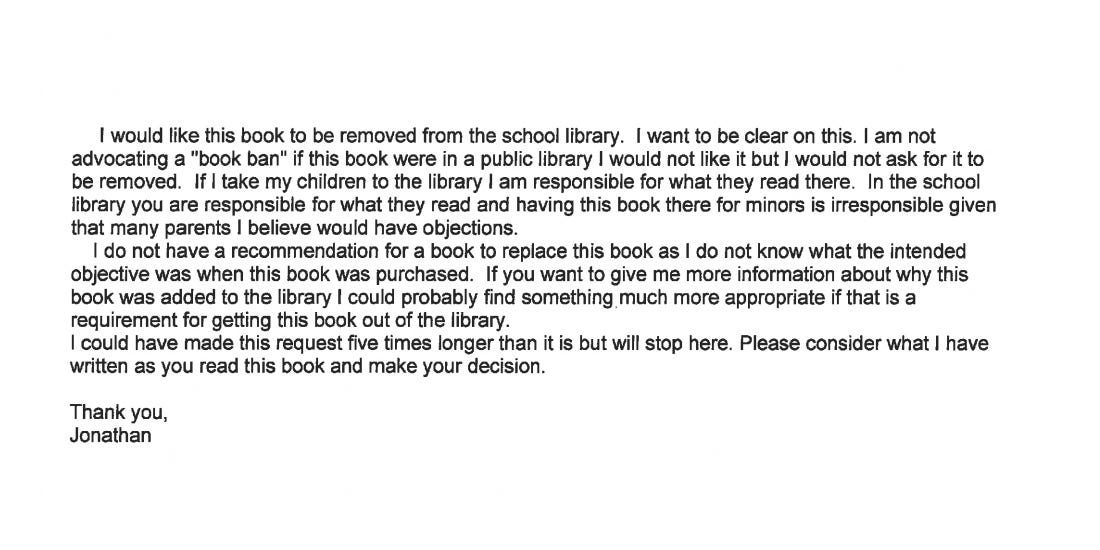I Am Part of The 86%
Company or not, it sucks to be banned. I'm also increasingly bitter about it.
This week, Wentzville School Board in Missouri demanded more security for their regular meetings. It was another meeting that went on for several hours, but this time, one board member told a fairy tale about how he heard Black Lives Matter was going to show up to the meeting and he felt unsafe. The board agreed to give themselves more security, so now, there will be two officers there for meetings.
"It’s telling of some of the positions that they consider the organization a hate group," Looney said. "It is dangerous to equate minority parents, who are concerned about their children and their education, to Black Lives Matter. This shows what they think of minority parents."
The board meeting where this all came to a head happened to be one involving discussion of trans student rights. It is also a district utilizing a racist image and name for its mascot.
My feelings about Wentzville needing more security because their bigotry is encouraging rationally-minded people to show up and speak out against nonstop discrimination are not particularly sympathetic. Wentzville was home to the second removal of my book Body Talk. Body Talk was among the 300-some titles the district removed for being out of compliance with state laws, and while it is possible the book is back on shelves now–that’s a claim from the district–there’s not proof or a way to check on the truth of the matter.

This week, I finally did a little number crunching on book bans with the robust set of data compiled by Dr. Tasslyn Magnusson. After seeing and hearing innumerable “favorite banned books” talks and displays over the last few weeks which centered the same few books over and over–and let me emphasize that the titles getting that attention deserve it!–it became clear how most people do not get that book bans are not beneficial for anyone…but more, they’re especially not “beneficial” for those of us who aren’t topping the lists. By “topping the list,” I mean books that are being banned by don’t get a little lift because they’re the most banned. Because they don’t make the reports that circulate.
Here’s the number to sit with: 86% of the books banned at schools in the 2022-2023 school year were only removed from 1 or 2 districts. That is a helluva lot of books getting pulled–that we know of–and chances are, most people couldn’t name many, if any, of those titles. The myth of book banning being a financial windfall has been destroyed many times over by now, but it’s worth emphasizing this is even truer for the books not at the top (the vast majority of books).
I don’t like thinking about how “lucky” I am to have only been banned twice, per PEN records. I also am tired of constantly pointing out that Body Talk is my poorest selling book and remains the only book of my three anthologies that did not earn out–my prior two earned out within a year of publication. But Body Talk has been banned twice, so according to some, that should’ve been a financial windfall right?
Hardly. Most people don’t know and most do not care.*
I have not seen the formal complaints about the two places where the book was banned. Wentzville never released that. Neither did Collierville Schools in Tennessee. Body Talk was part of Collierville’s wholesale sweep-and-scan rating of queerness throughout the entire library selection. That district created a five-tier book rating system correlated to the kind of LGBTQ+ content in the story. Books got labeled according to how gay they were, I guess, and Body Talk earned a tier one. The rating meant it was the least gay, since it only had side characters within the LGBTQ+ umbrella. Too bad the rating managed to be both offensive–who does this and who GETS to do this?–and straight-up erasure of the range of queerness throughout the book–I guess I’m not gay enough and neither were several of my contributors.
Perhaps I consider it lucky to have seen formal complaints of Body Talk in Wilton-Lyndeborough Cooperative Middle/High School. The district, in a split vote, elected to keep my book on shelves, but it was not a majority opinion. Maybe in part because the complaints came from school board members themselves who felt they had the authority to determine whether or not materials were appropriate. At least for one member, Darlene, the book is not appropriate for anyone, ever! There’s no value in it at all.
She’s not aware of and doesn’t care about the value of the book since she’s offended by it. This is a person who has authority in a school board.
Yet, her complaints do not go as far as her friend Jonathan’s.
It feels tame, honestly, and I suspect part of why this does not sting as much as it could is two fold. First, I’ve read hundreds of similar complaints over the last three years, so I’ve seen worse. Second, I didn’t write the entire book, as I edited it. That doesn’t change the fact I feel a certain ownership and protectiveness over the entirety of it–I do, and in ways that cannot be explained unless you have edited an entire book of people’s work that you personally sought out to include.
When the news about Amanda Gorman’s poetry collection being restricted in Miami Dade schools made the news, it was the first time many people had the chance to see what a book complaint form looked like. Even folks I know to be “aware” on book bans were shocked to see how silly it was.**
Yeah, they’re all that bad, and they have been for years. They will continue to be that bad, too. Until policies are stronger and schools follow their own policies, the laze with which book banners file their complaints and get away with it will continue as is.
I’m not entirely sure what the takeaway is here. Maybe I worry too much there needs to be a takeaway, since the book banners only care about things being taken away. Or maybe, really, the takeaway is how little I have left to have taken. Body Talk won’t make the banned books lists or displays, and the reasons behind why the book has been banned won’t make the sexy descriptions of click-bait articles on how bad book banning is. There will still be ignorant stories about how banning books like mine gets kids to read more (in fact, the opposite is true) and how books that get banned are lucky since they cash out and get on people’s radars and wow, the goal of any authors should be to get banned.***
Excuse me while I cry tears for Wentzville feeling unsafe because they heard Black Lives Matter might show up to their meeting.
Our system is beyond messed up and until people with money stop patting themselves on the back for sending some books to Florida–the same books, the same books, the same books–and instead put that money and effort into policy change, by this time next year, it’ll be another 1,200 books on the list of banned books that people don’t know or bother to learn or even pretend to care about.
Notes:
*Can you blame people for not caring anymore? I don’t.
** Sometimes it really does feel like screaming into a void. Like everything you’ve said or done or shared or explained falls on closed ears, on closed eyes, onto minds that refuse to believe this is reality, even if they claim to be “good liberals.” Those ones are the worst.
***This one is as bad as the “live your life in such a way that you’d be banned in Florida!" meme that will not die. Can you be any more ignorant of the actual cost of book bans? Of persecution for being gay or trans or a person of color?








I don't know what to say that can be helpful. Other than of course you're right that sending books to Florida or anywhere else doesn't address the problem or even come close to changing policies or minds. But I want to let you know that when I went to order Body Talk and (Don't) Call Me Crazy from my local (small) indie, I found out both are on the shelf. My buying the books also doesn't change the situation. I get that. Multiple copies are also available in our library system (NYS). I know that having them here doesn't change that they are not available everywhere. And that's the change we want.